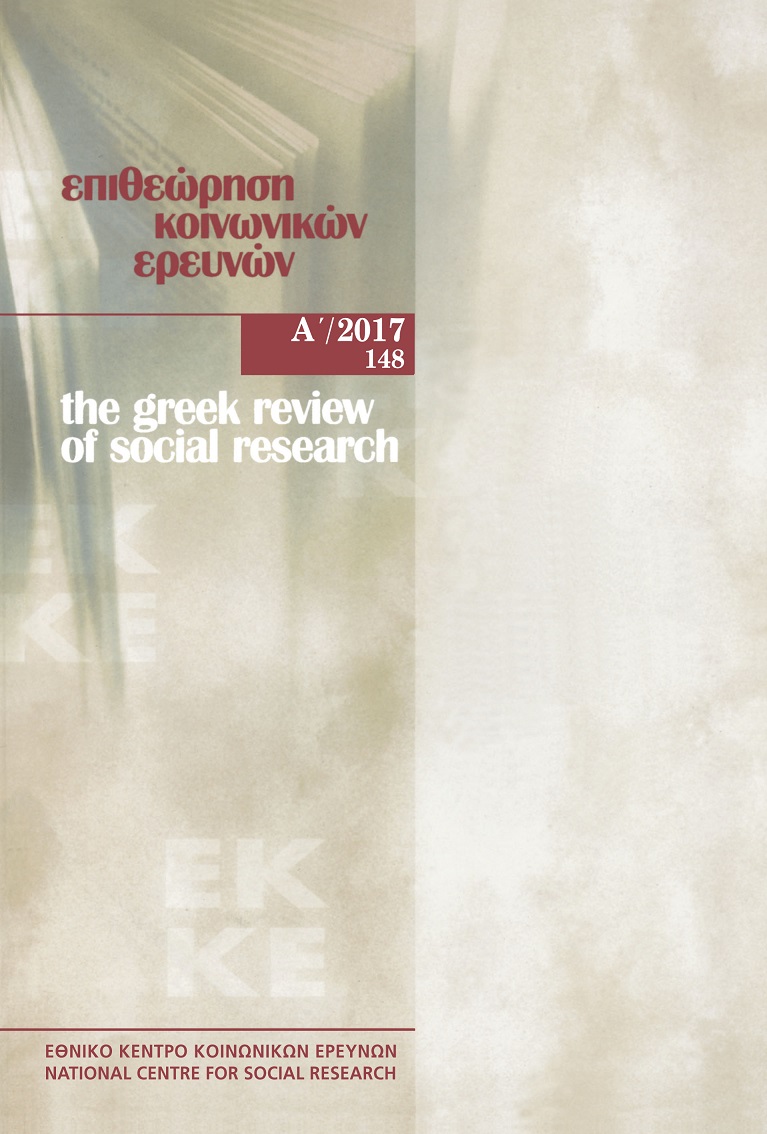Data analysis on innovation in Greece. The challenge of surveying innovation in enterprises and economy

Abstract
Innovation, as a meaning, is often used in a dilating way, while surveys at national level to measure innovation in enterprises are subject to specific criteria, limiting their analytical and explanatory power. The article aims to initially show off the problems with the concept of innovation, taking into account recent developments. Then it presents factually innovation in Greece, highlighting the –sometimes contradictory- conclusions that arise from official and other reviews on innovation. Finally the article attempts to interpret the reasons for this phenomenon, focusing on the Greek case.
Article Details
- How to Cite
-
Chrysomallidis, C. (2017). Data analysis on innovation in Greece. The challenge of surveying innovation in enterprises and economy. The Greek Review of Social Research, 148, 3–38. https://doi.org/10.12681/grsr.14707
- Issue
- 2017: 148
- Section
- Articles

This work is licensed under a Creative Commons Attribution-NonCommercial 4.0 International License.
Authors who publish with this journal agree to the following terms:
- Authors retain copyright and grant the journal right of first publication with the work simultaneously licensed under a Creative Commons Attribution Non-Commercial License that allows others to share the work with an acknowledgement of the work's authorship and initial publication in this journal.
- Authors are able to enter into separate, additional contractual arrangements for the non-exclusive distribution of the journal's published version of the work (e.g. post it to an institutional repository or publish it in a book), with an acknowledgement of its initial publication in this journal.
- Authors are permitted and encouraged to post their work online (preferably in institutional repositories or on their website) prior to and during the submission process, as it can lead to productive exchanges, as well as earlier and greater citation of published work (See The Effect of Open Access).


